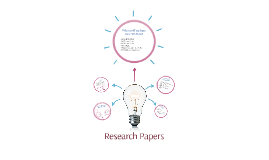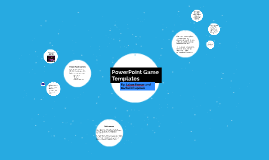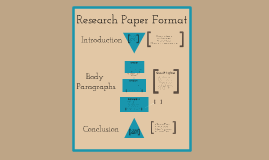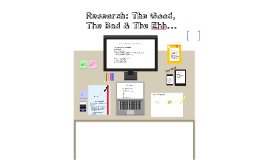Research Papers
Transcript: Research Papers Presentation by Jordan Montejano English Instructor, Tutoring Center 2-29-2024 The Prompt Getting Started Read the prompt for your assignment and look for key words and phrases. Think about what kind of resources you'll need to find, what is available to you online and on campus, and what you would like to write about. Sample Prompt: Write about a current controversial event and explore both sides of the issue. Brainstorming Brainstorming If you don't know what to write about, then do some brainstorming. There are a few techniques you can try. On the right, is an example of brainstorming based on the Sample Prompt. Free Writing Set a timer, and write as much as you can about a topic until time is up. Don't worry about spelling and grammar. Listing Write lists of words and categorize them based on what is alike and different. Cluster List words and phrases on a web. Connect related words with a line. Venn Diagram Organize ideas based on how they are the same and different. Light Research Do some light research to see what interests you. Gun Control Venn Diagram Pro Gun Second Amendment right. A good guy with a gun is the best deterrent against a bad guy with a gun. Guns don't kill people. Anti Gun The Second Amendment is outdated. There are a number of deaths by suicide and by accident from the use or misuse of a gun. Only police and military need guns. Freedom Violence Guns Fear Gun Control Cluster Protection Weapon School Shootings Right Tool We should have gun rights, but they should be limited. Outline Based on the ideas from brainstorming, put together a rough outline, so you know what you will be researching. Introduction Hook: A sentence or two to catch the reader's attention. This could be a fact, a startling statement, or an enciting question. Overview: A few sentences that explore the topic. Thesis: The point you are making in the paper. Some professors refer to this as the topic plus your point. Body Paragraphs (repeat process for each body paragraph). Topic Sentence: A sentence that introduces what the body paragraph will cover. Evidence: applying textual evidence from your research to your paper. Analysis: your evaluation of the evidence and the source. Wrap Up: closing up the paragraph before you go into the next. Conclusion Thesis: Restate your thesis. Overview: Review what your body paragraphs have done. Closing Statement: Leave the audience with something to do or think about. Outline Research Scholarly and Non-Scholarly Resources Before you begin the research process, know what kind of sources you are supposed to have and how many you will need. Most research papers will use a combination of scholarly and non-scholarly sources. A scholarly source is peer reviewed by experts in the field. Many essays are scholarly. A non-scholarly source is anything that isn't peer reviewed like a YouTube video, a newspaper article, or a work of fiction. Where to Find Sources https://www.craftonhills.edu/current-students/library/index.php Go to the home page on craftonhills.edu and click the library option under the student services tab. If you are looking mostly for physical texts, you can type into the Search Catalog box to search for books in the library. After you pick search, you can choose which libraries, Crafton Hills, SB Valley, or libraries worldwide, you want to include. For most online sources, click on Article Databases. The next slide will cover three major article databases. Research Guides offer suggestions and tips for finding sources for specific subjects. https://craftonhills.libguides.com/?b=g&d=a How Research is Done craftonhills.edu>student services>library>Article Databases https://www.craftonhills.edu/current-students/library/library-databases/index.php EBSCO is a useful resource for most subjects and you can find a variety of scholarly and non-scholarly sources. US Major Newspapers has access to five major newspaper sources. Opposing Viewpoints in Context features sources on various current and controversial topics. Depending on your class, Google Scholar may be a good choice for research as well. To explore the controversial issue of gun control, I went to Opposing Viewpoints in Context and searched The Right to Bear Arms. https://go.gale.com/ps/searchTopic?topicId=GALE%7C00000000LVYV&searchResultsType=MultiTab&searchType=ts&bname=Right+to+Bear+Arms&userGroupName=yuca26750&inPS=true&prodId=OVIC&category=Society+and+Culture Evaluating Sources How do you know if a source is a good one? First, look to see if your professor has a requirement on how many and what kind of sources you need. Example Source Requirement: have at least two scholarly articles, a newspaper entry, and at least two other credible sources. See what kind of source it is A peer reviewed scholarly essay or a reliable newspaper is much more credible than an interview with a heated protester or a blog. Read the abstract if one is available The abstract will give you an idea of what the entire source is

















